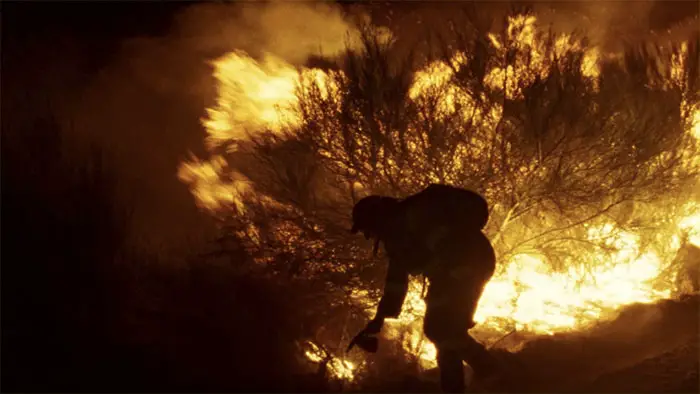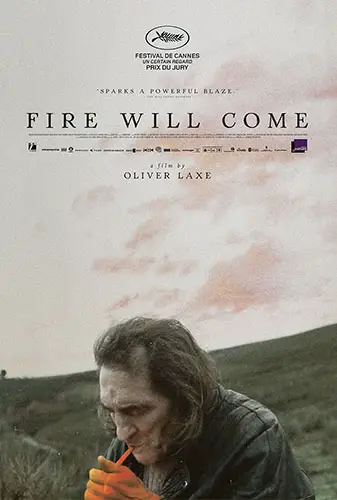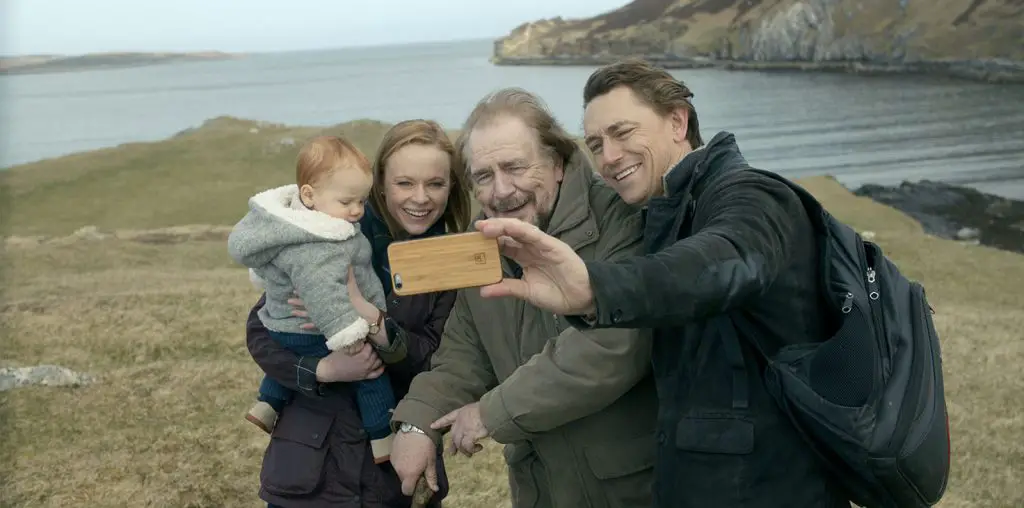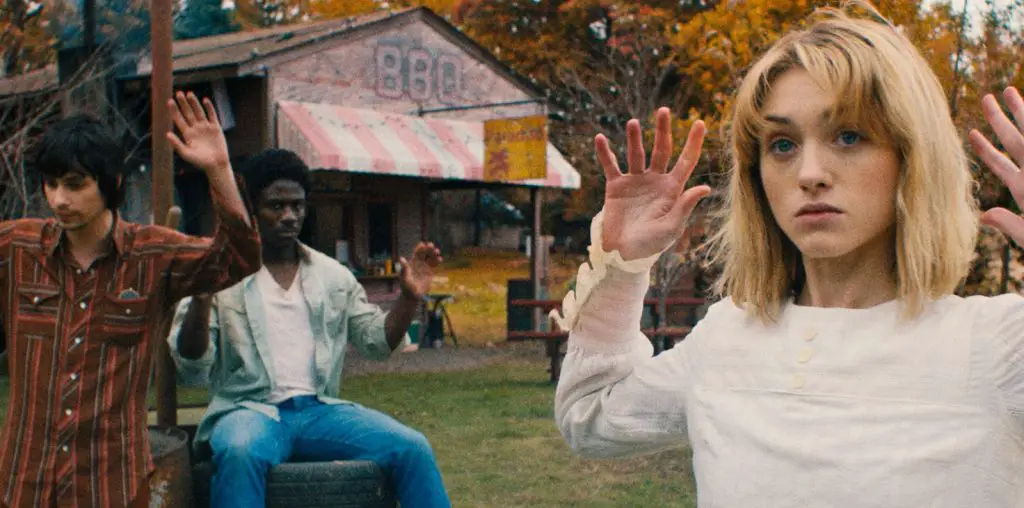
After beating a handsome young man to a pulp, a character in David Fincher’s classic Fight Club proclaims, “I wanted to destroy something beautiful.” I wonder if a similar type of anarchic logic drives arsonists to set entire forests aflame. The protagonist of Oliver Laxe’s Fire Will Come is too reticent, too introverted and stoic, to reveal what drove him to do what he did. Similarly, the film itself demands that you surrender to its leisurely and melancholic rhythm and draw your own conclusions. Along the way, something beautiful will surely be destroyed.
The prolonged, hypnotic introduction brings to mind Lars von Trier’s painterly prologue to his masterpiece Melancholia. The serenity of a quiet forest is violently ruptured when darkly-lit trees start to collapse upon each other, taken down by giant machinery. A classical score builds to its thunderous climax. The expectations are set, as a whisper turns into a mournful scream.
Laxe’s pseudo-documentarian approach extends to naming his characters after the actors playing them. Amador Coro (Amador Aria), a notorious arsonist, gets caught and serves time. Upon release, he returns to his home village in rural Galicia, catching his mother, Benedicta (Benedicta Sánchez), off-guard. He helps her with the three cows, who are running out of pastures to graze, and encounters a few of the neighbors. Among them are Inazio (Inazio Abrao), who’s building a bed and breakfast for tourists, and Elena (Elena Fernandez), with whom the impenetrable Amador has a tiny spark of chemistry.

“…the titular fire…(is) an unstoppable force destroying everything in its path, including the villagers’ dreams, their homes, and stock.”
Amador regards the village and its inhabitants with something resembling dejection, along with a hint of judgment. Although he’s no longer serving time, he is a prisoner in his own home, perhaps in his own skin. He avoids crowds, harboring a deep inhibition or pain, an anger towards the complacency and monotony of small-town existence (which Laxe so aptly portrays). When the titular fire does arrive, in the film’s final third, it’s an unstoppable force destroying everything in its path, including the villagers’ dreams, their homes and stock. Is it Amador, setting the monotony aflame? Or are we so inclined to judge a person by their past sins that we, like Inazio, immediately assume that he’s the one to blame?
Laxe wisely keeps the dialogue to a minimum. When characters do speak, their exchanges resonate. Amador talks to his mother about trees and their lengthy roots, how some are a plague that need to be eradicated. “If they hurt others,” Benedicta says, “they hurt too.” Does her son hurt out of hurt? And if so, has he succumbed to the fact that he needs to be eradicated? It certainly seems like it, when he’s receiving a beat-down in one of the film’s most powerful sequences.
Fire Will Come is sparse as Laxe uses his canvas to play with contrasts: those of light and darkness, noise and silence, the starkness of a ravaging fire and the solitude of a lonely man. Its sheer visual beauty will take your breath away, whether it’s thick fog coating pastel vistas or a confused horse with its eyes burnt, lost in the middle of fire-ravaged woods. Like the inferno it depicts, Laxe’s film casts an entrancing spell.

"…Its sheer visual beauty will take your breath away..."


